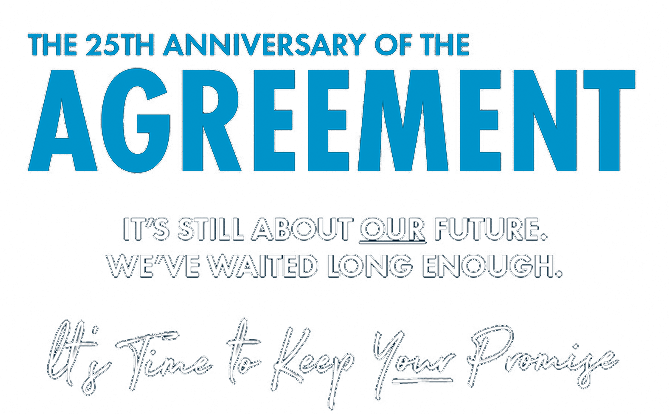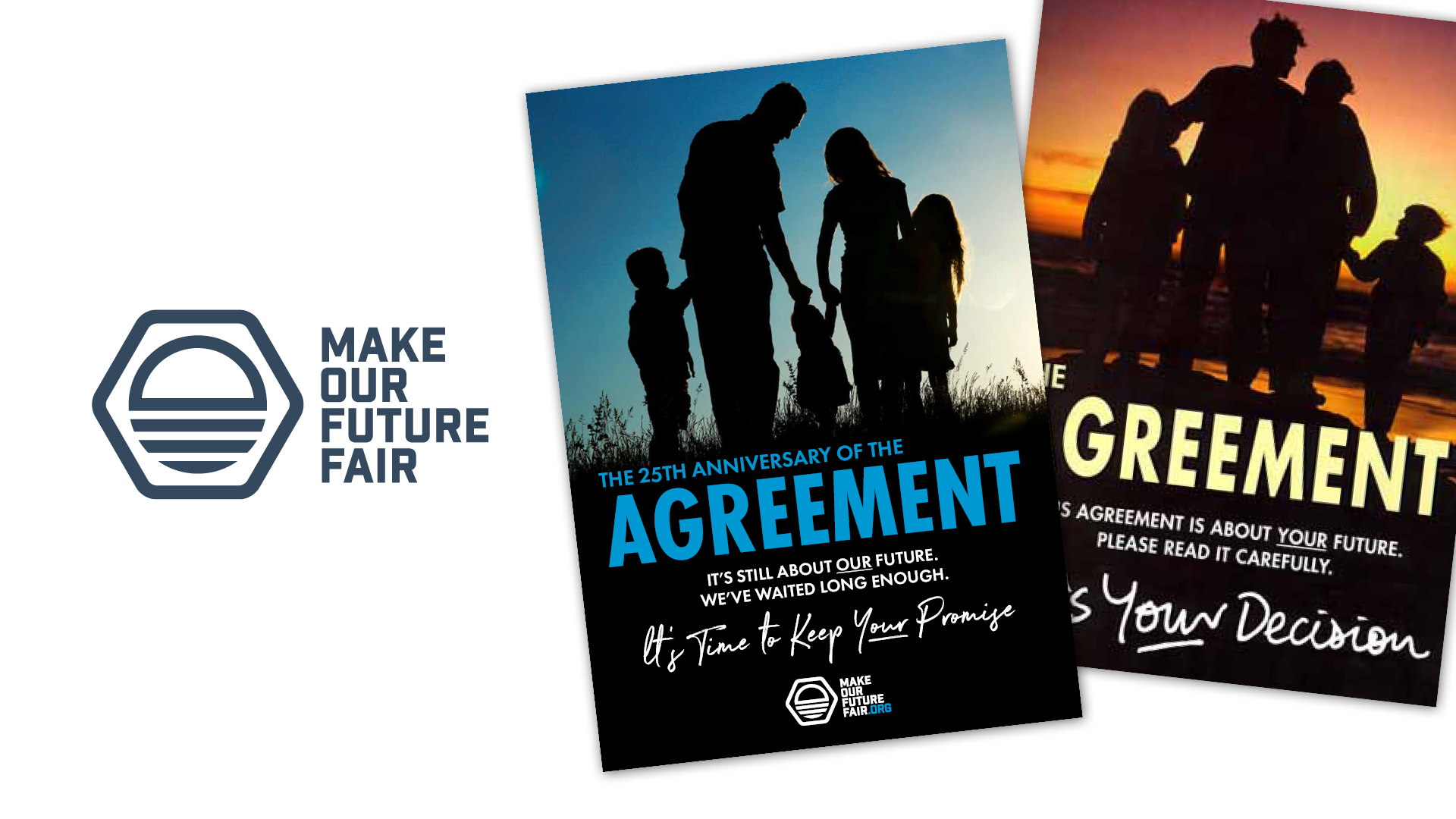Our Supporters
-
Committee on the Administration of Justice
Brian Gormley from the Committee on the Administration of Justice (CAJ), an independent non-governmental organisation affiliated to the International Federation for Human Rights on why they are part of the Make Our Future Fair Campaign.
-
HERe NI
Danielle Roberts from HERe NI, a community organisation supporting lesbian and bisexual women and their families across Northern Ireland on why they are part of the Make Our Future Fair Campaign.
-
Irish Congress of Trade Unions
Gerry Murphy, President of the Irish Congress of Trade Unions, the umbrella organisation to which trade unions in both the Republic of Ireland and Northern Ireland affiliate on why they are part of the Make Our Future Fair Campaign.
-
Human Rights Consortium
Kevin Hanratty from the Human Rights Consortium, a broad alliance of civil society organisations from across all communities, sectors and areas of Northern Ireland on why they are part of the Make Our Future Fair Campaign.
-
Amnesty International
Patrick Corrigan from Amnesty International, a campaigning organisation whose purpose is to protect people wherever justice, fairness, freedom and truth are denied, on why they are part of the Make Our Future Fair Campaign.
-
Rural Community Network
Aidan Campbell from Rural Community Network, a membership organisation which supports rural communities throughout Northern Ireland on why they are part of the Make Our Future Fair Campaign.
-
North West Forum of People with Disabilities
Tony O’Reilly from the North West Forum of People with Disabilities, a pan-disability rights based organisation representing people with sensory, physical, hidden, learning disabilities as well as people with mental health issues on why they are part of the Make Our Future Fair Campaign.
-
Transgender NI
Alexa Moore from Transgender NI, an organisation focused on supporting the human rights of transgender people in Northern Ireland on why they are part of the Make Our Future Fair Campaign.
-
Womens Resource and Development Agency
Rachel Powell from the Womens Resource and Development Agency, a membership organisation that provides training, information and support, while also campaigning on all the key issues affecting women on why they are part of the Make Our Future Fair Campaign.
-
UNISON
Patricia McKeown from UNISON, one of the UK’s largest trade unions representing 40,000 members who provide public services in Northern Ireland on why they are part of the Make Our Future Fair Campaign.
SPREAD THE WORD!
The most important part of Make Our Future Fair is talking to you, getting your support and getting everyone involved in making a better Northern Ireland for us all!
We want to make getting involved and supporting this campaign as easy and accessible as possible and we need your help to get the word out about the campaign and make sure that everyone knows what it is about, why it is so important and how they can get involved.
Follow us on Facebook, Twitter and Instagram and let us know what you want to see in a Bill of Rights using #MakeOurFutureFair.
You can show your support for the campaign by using our Facebook and Twitter banners, add the campaign to your profile picture by searching Make Our Future Fair on Facebook photo frames, or add it as a Twibbon now!
Click the button to download our activist pack of handy social media graphics, print out posters and logos that you can use to spread the word and be an essential part of the campaign!
Together, we can Make Our Future Fair.
FAQs
-
A Bill of Rights is a list of basic rights and freedoms that a government agrees to legally enforce in order to better protect the individuals within the state.
The duty is therefore on the state to protect the various rights of the individual in a Bill of Rights using all of the legislative, policy and decision-making powers at its disposal.
Bills of Rights are part of the normal constitutional frameworks of many democracies around the world.
While proposals for a Bill of Rights have been around for years, provision to develop a Bill of Rights for Northern Ireland was included in the Belfast/Good Friday Agreement 1998.
-
There are countless reasons why we could benefit from having a Bill of Rights.
Some of these include:
- Providing the people of Northern Ireland with the best possible human rights standards.
- To help protect the most vulnerable members of our society and improve their quality of life.
- To clearly define the rights of individuals and the states duty to protect them.
- To enshrine important aspects of society as rights and not merely entitlements that may be undermined – e.g. adequate healthcare (NHS), access to education and others.
- To act as an important safety net in our society when things go wrong (e.g. CVD-19).
- To give certainty and clarity to people around their rights during times of instability (e.g. Brexit)
- To set a direction of travel for the development of rights and a blueprint for good governance based on human rights for our elected representatives.
- To help elected representatives use objective, internationally recognised standards when making decisions that overlap with human rights.
- To provide a legal basis under which politicians and the government can ensure our rights are respected, implemented and protected.
- To promote open government and ensure that we can hold politicians and government to account for any failure in their duty to protect our rights.
- To ensure that the rights of any individual is protected on an equal basis regardless of race, sex, religion, political opinion or any other status.
- To build confidence across all communities, in what is still quite a divided society, that power will be exercised in a fair and equal manner regardless of who is in control of our government.
- To fulfil our international legal obligations by incorporating internationally agreed human rights standards from the United Nations and other sources.


